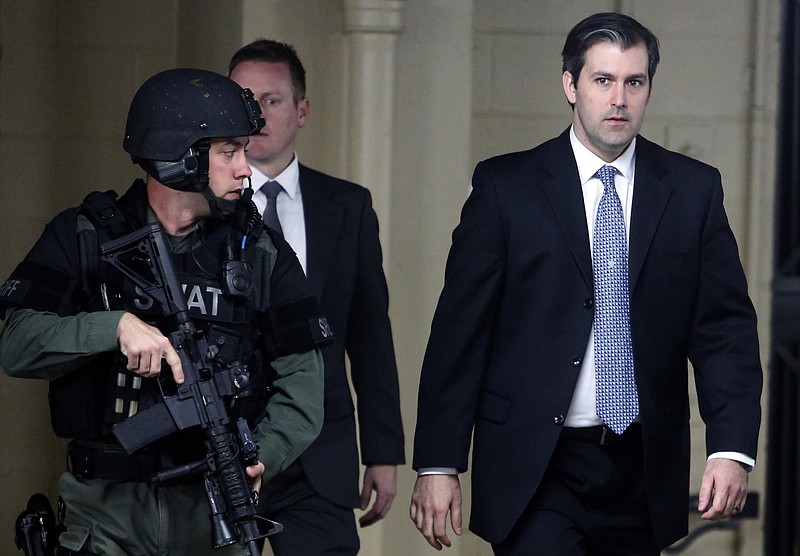CHARLESTON, S.C. (AP) - A judge overseeing the federal sentencing of a white former police officer who pleaded guilty in the shooting death of an unarmed black motorist is allowing expert defense testimony about disputed audio and video recordings.
On Tuesday, one of those experts said his analysis showed former North Charleston officer Michael Slager fought with Walter Scott before their fatal encounter and the ex-officer said: "Let go of my Taser before I shoot you."
The defense team believes evidence bolsters Slager's contention that Scott was aggressive and the officer shot him in self-defense. A microphone on Slager's uniform also picked up Scott saying, "F-k the police" after Slager asked him to get on the ground, Grant Fredericks testified.
Prosecutors counter that there is no way to definitively tell what is being said on the recordings, and they have used their own experts to show how Slager fired at Scott as he was running away, nowhere near the officer's stun gun.
Slager, 36, pleaded guilty in federal court in May to violating Scott's civil rights by shooting him without justification on April 4, 2015. Slager had pulled Scott over for a broken brake light, and the 50-year-old Scott ran. After deploying his stun gun, Slager fired eight times at Scott as he ran away, hitting him five times in the back.
Slager's federal sentencing is expected to wrap up this week. Unlike his state trial, it is taking place only before a judge, with no jury, a setup that has allowed both sides to move more quickly through their presentations.
At the end of the day Tuesday, a forensic psychiatrist testified that he felt state police should have videotaped their interview with Slager and that the officer had a normal psychological profile when he was evaluated by his team and didn't seem to be impulsive or depressed.
Proceedings were expected to pick back up Wednesday, when prosecutors said they would begin to call witnesses including Scott's son, who would testify about the loss the death created in their lives.
U.S. District Judge David Norton has had the entire state case file for months, nullifying any need for attorneys to re-present much evidence and testimony. Defense attorneys and prosecutors gave opening statements, including brief overviews of the facts of the case, but didn't labor over explaining nuances in the law that would be necessary in a jury trial. At the end of testimony, they're expected to give equally succinct closing arguments.
Slager faces up to life in prison, although federal sentencing officials have recommended 10 to nearly 13 years. Slager's attorneys are asking for less than that.
A year ago, relief washed over Slager's face as jurors couldn't reach a verdict in his state trial. The state murder charge against Slager was later dropped in the plea agreement with federal prosecutors.
Just yards from that county courthouse, Slager sits in a federal courtroom. His wife is again by his side, but this time she sees her husband shackled and handcuffed, wearing a prison jumpsuit. He has been in jail since his guilty plea.
At his state trial, Slager wore a button-down shirt and slacks, sometimes accompanied by a jacket.

